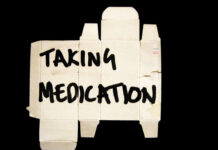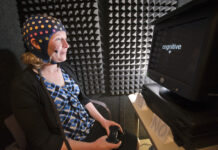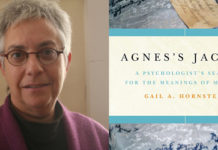Increased Suicidality in Cymbalta Trial for Fibromyalgia in Teens
A new as-yet-unpublished trial of duloxetine (Cymbalta) for fibromyalgia has presented more evidence of suicidal events in teens.
Danish Study Finds Better 10-year Outcomes in Patients Off Antipsychotics
Study finds that 74% of patients with a psychotic disorder off antipsychotics at end of 10 years are in remission.
The Role of Racial Bias in the Overdiagnosis of Schizophrenia
Researchers detect disparity between white and African American patients diagnosed with schizophrenia when symptoms of a mood disorder are present.
Systematic Review Finds Antidepressants Double the Risk for Agitation and Violence in Healthy Volunteers
The Nordic Cochrane Center conducted a systematic review of existing research trials on antidepressants and found that the drugs doubled the risk of feelings...
New Study Finds Brain Changes in Newborns Exposed to Antidepressants
A fist of its kind neuroscience study, published this month in Cerebral Cortex, found changes in the brain electrical activity of infants exposed to SSRI antidepressants during pregnancy.
Madness and the Family, Part III: Practical Methods for Transforming Troubled Family Systems
We are profoundly social beings living not as isolated individuals but as integral members of interdependent social systems—our nuclear family system, and the broader social systems of extended family, peers, our community and the broader society. Therefore, psychosis and other forms of human distress often deemed “mental illness” are best seen not so much as something intrinsically “wrong” or “diseased” within the particular individual who is most exhibiting that distress, but rather as systemic problems that are merely being channeled through this individual.
Countervailing Forces Against Ritalin Use in France
A new study in the journal Social Science and Medicine explores why French children take stimulants far less than children in the United States. The study looks at how particular forces in society, in concert with government agencies, became an effective check on stimulant marketing for kids in France.
The Mountain Man
Self-acceptance is a very human experience, and a necessary one in the pursuit of personal happiness. In my experience, the mental health field does an abysmal job of addressing this truth.
Meta-analysis Links Childhood Trauma to Psychosis Symptoms
The study results suggest that experiences of childhood trauma impact the development of symptoms associated with psychosis.
Study Explores Cognitive Effects of Antipsychotics
Reduced usage of antipsychotics in first-episode psychosis was associated with improved executive functioning.
The FDA Is Hiding Reports Linking Psych Drugs to Homicides
In my wildest dreams, I could never have imagined being drawn into a story of intrigue involving my own government’s efforts to hide, from the public, reports of psychiatric drugs associated with cases of murder, including homicides committed by youth on the drugs. But that is precisely the intrigue I now find myself enmeshed in.
Mindfulness Intervention Can Prevent Depression, Study Finds
A combined mindfulness and behavioral activation intervention is shown to reduce depressive symptoms and serve as a preventative factor for major depressive disorder.
New Research on Patient-Centered Deprescribing for Antipsychotics
Researchers review the risks and benefits of deprescribing from antipsychotic drugs and advocate for a patient-centered approach to tapering.
Therapy Recommended As First Line Treatment for Depression
Following an extensive systematic review of treatments for major depression, the American College of Physicians (ACP) issued a recommendation to clinicians suggesting cognitive behavioral therapy (CBT) as a first-line treatment for major depressive disorder along with second-generation antidepressants. The results of the review revealed that CBT and antidepressants have similar levels of effectiveness but that antidepressants present serious side-effects and higher relapse rates.
Germany Rejects New ADHD Drug
Finding that Shire's study of its successor to Adderall XR, Vyvanse, (lisdexamfetamine; known in Germany as Elvanse) was too short and did not look at the drug...
First-Person Accounts of Madness and Global Mental Health: An Interview with Dr. Gail Hornstein
Dr. Gail Hornstein, author of Agnes’s Jacket: A Psychologist’s Search for the Meanings of Madness, discusses the importance of personal narratives and service-user activism in the context of the global mental health movement.
Study Explores Māori Community’s Multifaceted Understanding of “Psychosis”
A new study explores how “psychosis” and “schizophrenia” are viewed within the Māori community in New Zealand.
ADHD, Bigfoot, and the Missing Links in Research
Like so many others, I have wanted to embrace the idea that research supports such beliefs as “ADHD is a chronic disease plaguing children”, and/or “Bigfoot exists”. I mean, who wouldn’t? We assume that research is based on sound evidence; information we can trust. Who wouldn't want to believe evidence that there is a simple medical explanation for those annoying behaviors exhibited by children in the process of developing into responsible young adults?
Initial Trial of Ayahuasca for Depression Shows Promising Results
Ayahuasca found to be effective in treating moderate to severe depression in low-income population.
Researchers Set the Record Straight on Controversial Zoloft Study
An issue of Lancet Psychiatry is devoted to clarifying the lack of efficacy for Zoloft (sertraline).
My Daughter and Prozac
While our daughter was growing up, my ex-wife treated our daughter’s body like a temple. She was the only kid among her friends not allowed to drink soda or cow’s milk as they might negatively affect her health. But Prozac for mild anxiety? Sure, no problem. I was honestly and genuinely shocked.
Racial Discrimination a Clear Contributor to Youth Mental Health Disparities
Greater perceptions of discrimination during adolescence are linked to more depressive and internalizing symptoms.
Traditional South African Healers Use Connection in Suicide Prevention
Study finds that traditional healers in South Africa, whose services are widely used by the country’s population, perform important suicide prevention work.
Married Individuals with Schizophrenia Show Better Outcomes, Study Finds
14-year study of a rural sample in China shows those who were married had higher rates of remission from schizophrenia.
Memoirs of a Dissident Psychiatrist
For years I had hoped that psychiatry would free itself from the psychoanalytic doctrine, and when my wish finally came true, my profession went from the frying pan to the fire. My main goal, currently, is to convince professionals as well as the public that most child psychiatric problems can be handled effectively without medication.




























